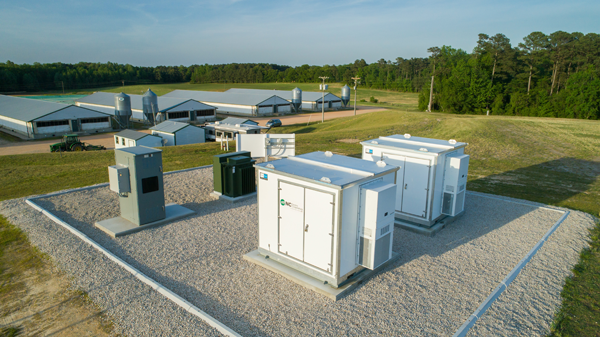PowerSecure, a subsidiary of Southern Company, and its partners have commissioned first-of-its-kind biogas microgrid in North Carolina, US.

Image: The PowerSecure’s biogas microgrid. Photo: courtesy of Southern Company.
The project partners include Butler Farms, South River Electric Membership and power supplier North Carolina Electric Membership (NCEMC).
Butler Farms is a member of South River EMC, a local electric cooperative.
Designed to power the farm and nearby homes, the Butler Farms microgrid integrates solar generation, a diesel generator, renewable biogas, a controller and energy storage in the form of lithium-ion batteries.
Butler Farms, a sustainability-focused hog farm in rural Lillington, North Carolina, generates biogas by capturing and burning methane gas from manure, and reduce odor from waste pits.
The newly commissioned microgrid is capable of operating on its own, or can also be remain connected to the main grid and supplement conventional sources of electricity.
For the project, PowerSecure has engineered a custom turnkey energy storage and controls solution. The custom controller is said to be a key component of the system.
Designed to provide backup generation, the custom controller can allow NCEMC to initiate the microgrid. It can also allow for automatic isolation of the farm from the larger electric grid distribution system.
NCEMC said in a statement: “The project will bring additional reliability to an already very reliable system in the local area.
“It also provides an opportunity to test the integration of new grid resources and technologies and serves as a case study for how agriculture and electric utilities – two of North Carolina’s most important industries – can work together to enhance the state’s rural communities.”
NCEMC noted that a separate cooperative microgrid is currently in operation on Ocracoke Island, part of North Carolina’s Outer Banks.
The project, which was developed through a partnership between Tideland Electric Membership Corporation and North Carolina’s Electric Cooperatives, also aims to provide reliable power to the remote communities.
